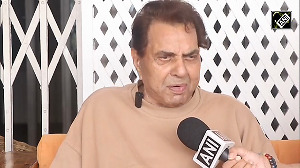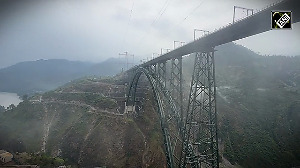However, the Indonesian Trade Minister Mari Pangestu said that the 10-member Asean had put the trade talks "on hold" until India came up with a more progressive way forward.
Indian trade negotiators had hoped that the FTA with Asean could be finalised before the arrival of Prime Minsiter Manmohan Singh later on Tuesday. However, Pangestu's statement had set the mood otherwise.
Kamal Nath, who arrived in Singapore on Tuesday to attend the Asean Economic Meeting, began one-on-one meetings with his counterparts from Singapore, Malaysia's Rafidah Aziz and Vietnam's Vu Khaon.
The disagreements in the FTA are over the tariffs and market access and share especially for palm oil, pepper and tea.
"We're postponing the negotiations for now until we can find a way forward," Pangestu said. "Unless India can come up with a more progressive way forward, we'll just wait," Pangestu, who is Singapore to attend the Asean summit, said. Malaysia, which holds the Chair for Asean's Tariff Negotiating Committee, is keen to see duties reduction for crude palm and refined palm oil.
India has made an offer to reduce customs duty to 50 per cent on crude palm oil and 60 per cent on refined palm oil by 2018. Palm oil producers Malaysia and Indonesia also want increased market share for palm and refined palm oil. Vietnam's interests are over the duty cuts on pepper and black tea.
"Asean India FTA negotiations have reached a concluding phase with only a few issues to be resolved," Kamal Nath recently told a Malaysian business magazine. He had expressed confidence that these would be resolved before the Asean-India summit.
The minister said there were mutual benefits in the investment regimes that would follow a Free Trade Agreement. He added that businesses have ample time to plan their investments on the basis of comparative advantage that is provided by the tariff concession.
"I am confident that India, along with Asean would be able to attract investments from all over the world," he told the magazine.






